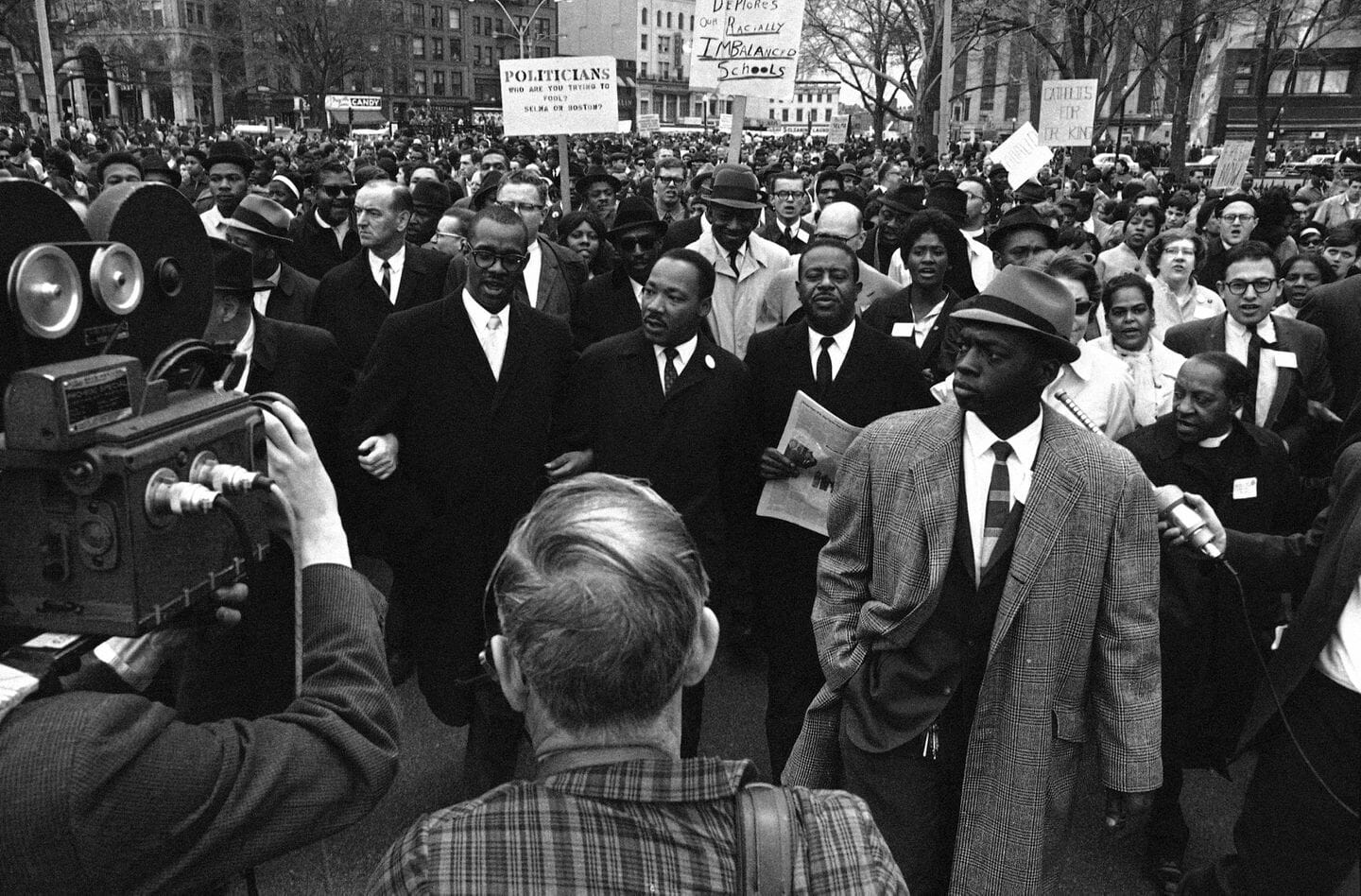
Lead like Martin? Yes and no

Rev. Dr. Debora Jackson
January 17, 2021
When we consider the characteristics that contribute to leadership effectiveness, we see much in the life of Rev. Dr. Martin Luther King, Jr. to aspire to. His leadership was rooted in a faithful embrace of the black social gospel,[i] nurtured in the black church tradition, and broadened through theological education. King’s leadership was also emboldened by a courageous spirit that helped him stay the course during challenging times. The combination of faith, academic formation, and courage bolstered his leadership, enabling him to bridge constituencies and create coalitions. These competencies also explain why we still look to King’s leadership today.
King was rooted in his faith and that sense of grounded conviction is critical for leadership. A product of the black church, King embraced a “belief in a personal God of judgment, grace, and miracles, a gospel of redemption and sanctification, and a strong insistence that the gospel has a social dimension.”[ii] This personal God valued all people and was inclined toward the poor, oppressed, and marginalized. These beliefs motivated King’s leadership as a champion for the poor. In like fashion, our leadership is sharpened when foundational beliefs direct our actions.
King used his educational preparation to give an expansive shape to his beliefs. As a doctoral student at Boston University, King gained a philosophical articulation for his faith when he embraced personalism, a belief in the worth and dignity of every individual, and a Gandhian commitment to nonviolence. Thus, King could explain his beliefs through language that affirmed a stance central to the gospel of Jesus Christ. This is what enabled him to bridge constituencies. He could speak to black communities in the language of the church. But King could also speak to white communities, gaining allies who were willing to become a coalition of support. As we educate ourselves to rightly explain the word of truth, we emerge as leaders who can speak expansively and persuade others to follow.
Effective leadership requires courage and King knew that. Testing King’s resolve to non-violence, an unidentified white supremacist bombed King’s Montgomery home in January 1956. King was safely away, but his wife, Coretta Scott King, and baby daughter, Yolanda, were home alone when the bomb detonated. While the bombing may have forced King to reassess his commitment to the cause, he was unwavering. He said to a crowd gathering around his house, “I want you to love our enemies. Be good to them, love them, and let them know you love them.”
We can learn much from Dr. Martin Luther King, Jr.’s leadership when considering it in total: being guided by a foundation of beliefs; leveraging educational and formational experiences that help us connect with others; and employing courage to stay the course. However, we must additionally extend ourselves beyond King’s leadership by exercising a humility that seeks the ideas of those without power and amplifies the voices of those who have been marginalized.
As pastors, few of us will know the anxiety of threats toward our families, yet we know the fear of being ahead of churches that are often slow to change. Wanting to inspire clergy courageousness, King acknowledged, “Far from being disturbed by the presence of the church, the power structure of the average community is consoled by the church’s silent and often vocal sanction of things as they are.”[iii] We, like King, must be girded by the power of God, who promised never to leave nor forsake us. Such boldness helps us step forward with conviction.
While King was an admirable leader, not all his leadership traits were commendable. He had, for example, a bias for pastoral leadership. “He told the congregation that he – not them, the deacons, or trustees – was in charge. Leadership descended ‘from the pulpit to the pew’ because ministers were ordained and authorized by God.”[iv] This stance disregards the notion that we are a priesthood of believers, each of whom can access the Holy Spirit for direction and guidance. It also discounts biblical examples where leaders were corrected or challenged by those who were not in charge. Jethro, Moses’ father-in-law, pointed out shortcomings in Moses’ leadership style (Exodus 18:17-27). God sent Nathan to King David to condemn his actions (2 Samuel 11:27-12:15). The Syro-Phoenician woman challenged Jesus and persuaded him to heal her daughter (Mark 7:26-30). Thus, we see throughout Scripture that God can use any of us to affect God’s plan.
King also seemed reticent to promote the leadership of women. Ella Baker was one of the founders of the Southern Christian Leadership Conference with King and activists Bayard Rustin and Stanley Levinson. While Baker ran the day-to-day operations of the organization, she was never afforded the title of Executive Director. King seemed against her permanent appointment because she was neither male nor clergy.[v] Then the program planned for the March on Washington for Jobs and Freedom, on which Baker diligently worked, “insulted every female leader in the moment,”[vi] because, according to civil rights activist Pauli Murray, “King and the ministers consigned women to support work.”[vii]
We can learn much from King’s leadership when considering it in total: being guided by a foundation of beliefs; leveraging educational and formational experiences that help us connect with others; and employing courage to stay the course. However, we must additionally extend ourselves beyond King’s leadership by exercising a humility that seeks the ideas of those without power and amplifies the voices of those who have been marginalized.
The Rev. Dr. Debora Jackson is Dean of the Robert A. Foisie Business School of Worcester Polytechnic Institute, a premiere Science, Technology, Engineering, and Mathematics (STEM) based institution recognized for project-based education that integrates the theory and practice of management and prepares students to assume positions of leadership in an increasingly global business environment while yielding societal impact. Her book “Meant for Good: Fundamentals in Womanist Leadership,” is available from Judson Press.
The views expressed are those of the author and not necessarily those of American Baptist Home Mission Societies.
[i] In his book, Breaking White Supremacy: Martin Luther King, Jr. and the Black Social Gospel (New Haven, CT: Yale University Press, 2018), Gary Dorrien defines the black social gospel as “an emphasis on black dignity and personhood with protest activism for racial justice, a comprehensive social justice agenda, an insistence that authentic Christian faith is incompatible with racial prejudice, an emphasis on the social ethical teaching of Jesus, and an acceptance of modern scholarship and social consciousness…” (Dorrien, Breaking White Supremacy, 3).
[ii] Dorrien, Breaking White Supremacy, 19.
[iii] Martin Luther King, Jr., “Letter from a Birmingham City Jail,” in James M. Washington, ed., A Testament of Hope: The Essential Writings and Speeches of Martin Luther King, Jr., (New York, NY: HarperCollins, 1986), 300.
[iv] Dorrien, 287.
[v] Debora Jackson, Meant for Good: Fundamentals of Womanist Leadership, (Valley Forge, PA: Judson Press, 2019), 112.
[vi] Dorrien, 353.
[vii] Ibid, 484.


